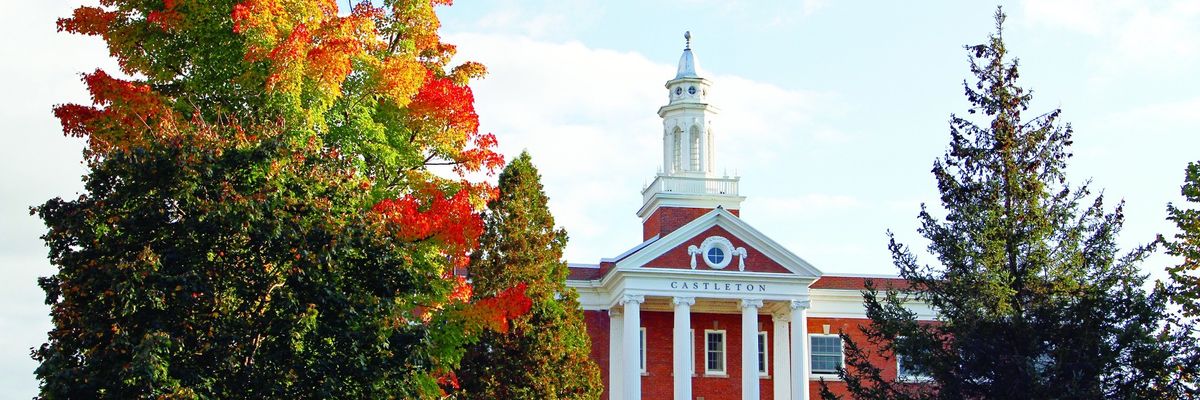Students, staff, alumni, and bibliophiles remain outraged that libraries at Vermont's public college are set to lose vast portions of their book collections, despite a new "refined plan" to potentially retain volumes that "have been deemed academically valuable."
Faced with intense
backlash to the all-digital plan unveiled last month, the Vermont State Colleges System (VSCS) said Thursday that academic department chairs and the provost may now be allowed to decide which books survive the purge.
Along with the selection of works that are determined to be academically vital to students, schools may maintain a "collection of popular, casual, reading books, as well as children's books in the library with a 'take-a-book, leave a book' honor system."
The plan to make the libraries mostly digital for the upcoming fall semester is part of a broader transition
underway: With the help and support of the state Legislature, Castleton University, Northern Vermont University, and Vermont Technical College will soon become Vermont State University (VTSU) and share a chancellor and board of trustees with the Community College of Vermont.
As
VTDiggerreported:
The system plans to keep roughly 30,000 books across five campus libraries, according to Sylvia Plumb, a spokesperson for Vermont State University. That figure is roughly 10% of the approximately 300,000 items in the current collections.
"The refined plan expands upon the original concepts to address the concerns identified by faculty, staff, and students," Plumb said. "This is a natural and expected part of the input and operational process."
[...]
The campuses will also keep a part-time library assistant at Castleton, Johnson, Lyndon, and Randolph, and will hire student workers. The move would still eliminate seven full-time positions, as administrators said earlier, but "several new part-time jobs will be available," Plumb said.
It's unclear how much the "refined plan" differs from the original plan. Plumb said in an email that the savings from the updated plan would be an estimated $500,000, "consistent with the original plan."
Speaking to a crowd that gathered at the Vermont Statehouse in Montpelier last month—before the refined plan was announced—Devon Harding
declared that as a Castleton student with learning disabilities, "the physical library is not a privilege, it's my right."
"My disabilities cannot be accommodated digitally. Eye strain, difficulty tracking lines, blue light effects on ocular health, struggles to focus. These are not problems a screen can help with," she said. "Furthermore, I can't afford all my textbooks without the library."
"How can you defend a higher education institution without books?" Preston Garcia, a Castleton biology professor who serves as the faculty assembly president, toldThe Boston Globe. "It's an embarrassing decision. Once you get rid of materials, they are gone."
The newspaper noted Monday that on one recent weekday at Castleton, signs at the library entrance read: "Save the books," "Books save lives," and "Books are history." Garcia said that despite the revised plan, "people are as upset as they have been."
While "the Vermont systemmay be one of the first in the nation to take such a dramatic step, higher education watchers say campus libraries are increasingly being targeted for dramatic changes," the Globe highlighted, pointing to similar moves by decision-makers at the University of California, Berkeley in 2017 and Florida Polytechnic University in 2014.
Although the changes in Vermont are ostensibly informed by usage and intended to save money, the developments come amid efforts by right-wing politicians and activists to
restrict books and lessons available at educational institutions and libraries nationwide.
Those book-banning campaigns and other censorship efforts are opposed by many
students, parents, educators, and librarians as well as groups including the American Library Association, American Federation of Teachers, and PEN America.
Battles to outlaw certain books and lessons in the U.S. are part of a worldwide trend documented in "not only autocracies but even liberal democracies,"
according to an annual report published earlier this month by the Varieties of Democracy Institute in Sweden. "The global retreat in academic freedom affects more than 50% of the world's population or 4 billion people."
